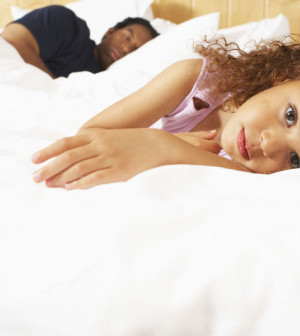- 10 Strategies to Overcome Insomnia
- Could Artificial Sweeteners Be Aging the Brain Faster?
- Techniques for Soothing Your Nervous System
- Does the Water in Your House Smell Funny? Here’s Why
- Can a Daily Dose of Apple Cider Vinegar Actually Aid Weight Loss?
- 6 Health Beverages That Can Actually Spike Your Blood Sugar
- Treatment Options for Social Anxiety Disorder
- Understanding the Connection Between Anxiety and Depression
- How Daily Prunes Can Influence Cholesterol and Inflammation
- When to Take B12 for Better Absorption and Energy
Headaches Are Common in Kids, Teens


A number of things can trigger headaches in children and teens, a pediatrician says.
About 10 percent of school-aged children and up to 27 percent of teens have headaches from time to time, according to Dr. Nick DeBlasio, a pediatrician in Cincinnati Children’s Hospital Medical Center’s Pediatric Primary Care Clinic.
One of the leading causes of headaches in children and teens is not drinking enough fluids, especially when youngsters are active outside during warm weather. The cure in this case might be as simple as having your child drink more water.
Missing a meal can also trigger a headache. Parents need to make sure their children eat a well-balanced diet with lots of fruits and vegetables. Too much caffeine and certain foods can also cause a headache, DeBlasio said.
Lack of sleep is another potential headache trigger. Middle and high school students typically need at least 10 to 12 hours of sleep a night.
High levels of stress at school or at home — such as a major move or parents getting divorced — can also lead to headaches.
If a child has difficulty seeing what’s going on at the front of the classroom, he or she might suffer eye strain, which can result in a headache. An eye test can help determine if a child’s headaches are caused by vision problems, DeBlasio said.
Children are also more likely to get headaches if a parent gets them, too.
If a youngster has a headache, give them over-the-counter ibuprofen and water, DeBlasio said. Follow the instructions on the package for appropriate dosage and do not give it to your child more than three times a week.
If a child’s headache persists for a few days or worsens, call a doctor.
More information
The American Academy of Family Physicians has more about headaches.
Source: HealthDay
Copyright © 2026 HealthDay. All rights reserved.










